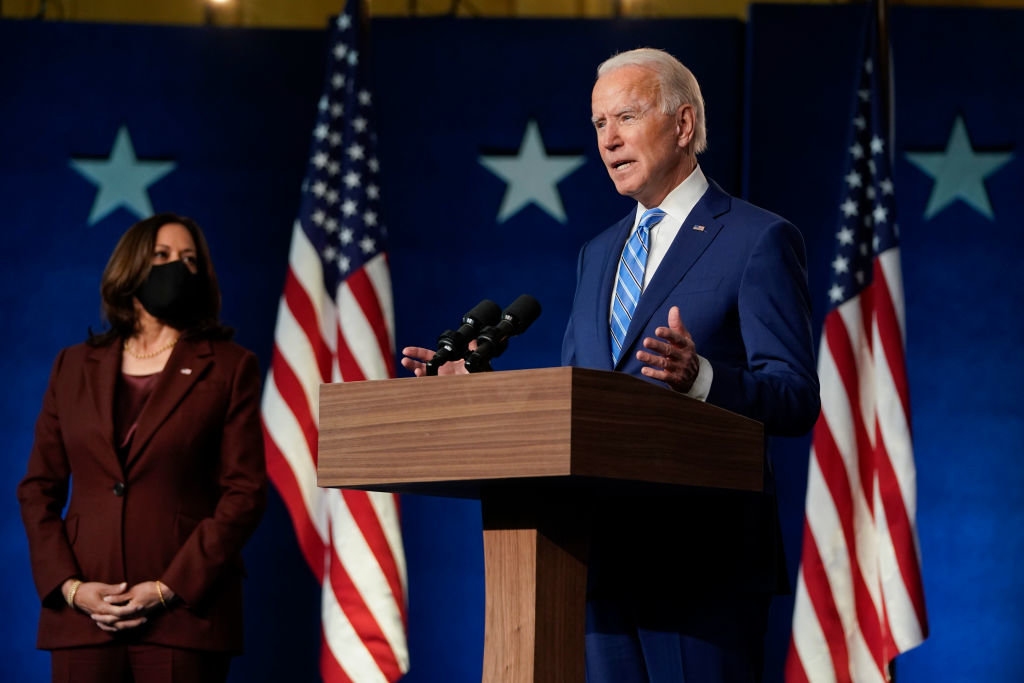HOW HE WON
Former Vice President Joe Biden earned the greatest number of votes in a US election, but the number that matters most is the electoral college count. Biden crossed the 270 electoral college threshold when CNN projected Biden to win Pennsylvania Saturday morning and therefore projected him to be the 46th president of the United States.
Every vote counted, and they continue to be counted. Late last week and into the weekend, Biden and his team expressed confidence as mail-in ballots continued to be tallied and were overwhelmingly in his favor. Between Tuesday night and Saturday morning, the country—and the world for that matter—anxiously waited for any one of the key swing states of Nevada, Pennsylvania, Georgia and North Carolina to be called.
Trump has yet to concede. Instead, he has responded with requests for recounts and a number of lawsuits in states across the country, alleging that illegal ballots have been counted. These challenges to Biden’s victory will likely continue into January as Trump continues to cling to the office. The process will take a while, but America’s court system doesn’t like to intervene in political cases.
TRANSITION
Trump will continue to govern until January 20 when he will be evicted from the White House. Between now and then, the Biden transition team will announce his cabinet and other key members of his administration in order to instil a sense of stability and readiness when inauguration day rolls around. These appointments will look vastly different than the nearly all-white, all-male White House Trump ran. Instead, Biden is looking to appoint African Americans, Latinos and women to high-level posts. We may even see Republicans serving in a Biden administration in an attempt to reach across the aisle and heal a divided nation.
Republicans likely hold on the Senate majority will impact Biden’s appointments. Because they will need to be confirmed by the Senate, Biden will likely choose more centrist candidates over those of the progressive wing of the Democratic party. He may also select current senators for his cabinet that hail from Democratic states as a safe choice. This ensures that the Democratic governor of those states would appoint a Democratic senator until a special election is called or until their term ends.
There is swirling speculation that Trump will not leave the White House willingly. As we’ve seen in the past, tensions can run over even in a conceded race. The administrator of the General Services Administration, a Trump appointee, has not yet authorized the Biden team to begin its transition. Without the administrator of the General Services Administration signing the paperwork, Biden’s transition team won’t receive the millions of dollars necessary to fund its transition efforts, access to government officials, office space in agencies and equipment. There is also concern that Biden’s “agency review teams” who are meant to assess the current state of federal agencies and create a roadmap for a smooth transition won’t be warmly welcomed.
During the transition between President Bill Clinton and President George W. Bush, the Ws of White House keyboards were removed, resulting in thousands of dollars’ worth of damage.
AGENDA
The first 100 days of any administration are watched closely. This sets the tone for the next four to eight years. Biden is not only looking to have a revolutionary first 100 days, he’s planning to check off a long list of promises on day one.
Biden unveiled his transition team’s website which details his team’s plans once he takes office. Simply put, his priorities include: COVID-19, economic recovery, racial inequality and climate change.
Biden will take immediate action to get COVID-19 under control and pass an economic recovery bill. He has promised to launch a coronavirus action plan that will include a task force and mandates on masking, social distancing, testing and tracing. He has said he will reach out to local government leaders to determine what they need to tackle the virus. On his first day, he plans to appoint a “national supply chain commander” and establish a “pandemic testing board.” By the end of January, Biden expects a bill on his desk with all the necessary resources to properly respond to the United States’ public health crisis and economy.
He has made various other promises of what he will do on day one in office. Those include:
- Issuing an executive order to create a federal task force to reunite migrant families separated during the Trump administration
- Rejoining the Paris climate agreement
- Rejoining the WHO
- Ending the Muslim Travel Ban
- Calling NATO allies
Biden’s candidacy was framed as a battle for the soul of the nation, many of his actions in the early days of the transition and his presidency will simply be about restoring normalcy to US politics. For a politically exhausted nation, that sense of stability will be a much-needed source of refreshment.
READ MORE OF OUR ANALYSIS ON BIDEN’S POLICIES:
- Trade policy with the UK, EU and China
- Impact on drugmakers and insurers
- Tech policy

